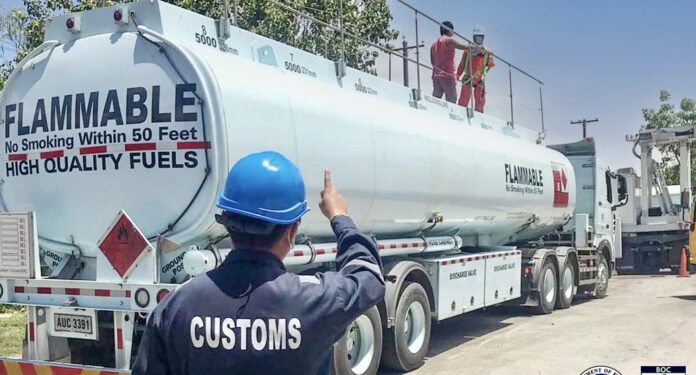
• The Philippine government marked 4.2 billion liters of fuel and collected P35.84 billion in duties and taxes under its fuel marking program in the first quarter of 2021
• From September 2019 to March 2021, a total of 21.7 billion liters of fuel were marked and P211.73 billion in duties and taxes collected
• Starting April 26, the government will implement random field and confirmatory testing of fuel products
The Philippine government marked a total of 4.193 billion liters of fuel and collected P35.84 billion in duties and taxes under its fuel marking program in the first quarter of 2021, according to the Bureau of Customs (BOC).
From September 2019 when the program was implemented up to March 2021, BOC and the Bureau of Internal Revenue (BIR) marked a total of 21.7 billion liters of fuel and collected P211.73 billion in duties and taxes.
Marking of fuel products, whether imported or manufactured in the Philippines, will become mandatory five years after the Tax Reform for Acceleration and Inclusion (TRAIN) law took effect on January 2018. Fuel marking aims to curb oil smuggling and plug revenue losses arising from the illegal importation or misdeclaration of petroleum products.
BOC earlier said a significant increase in volume declarations in gasoline, diesel and kerosene has been observed with the implementation of the fuel marking program.
In 2017, total volume declarations recorded were 7.75 billion liters, equivalent to P26.88 billion in duties and taxes collected, while in 2018, an aggregate 6.31 billion liters were declared and P39.79 billion collected.
In 2019, total volumes declared were 11.16 billion liters, 77% higher than the previous year’s. Duties and taxes collected amounted to P111.18 billion, a 179% surge from the 2018 collection.
This year, BOC and BIR will begin random field and confirmatory testing on April 26.
Field testing will cover gasoline, diesel and kerosene found in warehouses, storage tanks, gas stations and other retail outlets, and in such other properties or equipment, as well as in vessels, tank trucks, and similar fuel transporting vehicles.
Petroleum products found without the official fuel marker or not containing the required level of official fuel marker will be slapped duties and taxes, inclusive of fines and penalties. They may also be confiscated and forfeited and may face the filing of the appropriate criminal case.




